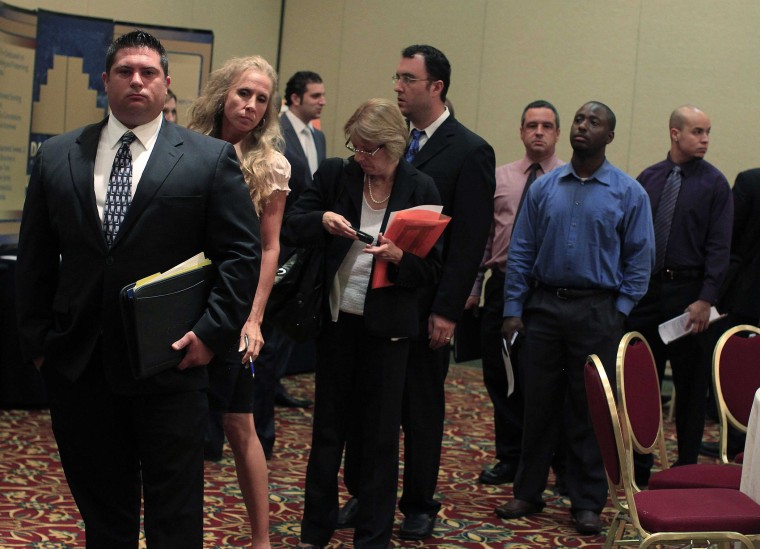The position of Republicans in Washington is rather strange -- less a moral or economic argument than an expression of indifference. "These have been extraordinary extensions, and the Republican position all along has been 'we need to go back to normal here at some point,'" argues Representative Tom Cole. "[W]hat we did was never intended to be permanent. It was intended to be a very temporary solution to a very temporary crisis," echoes Representative Rob Woodall. Of course nobody intended for the crisis of mass unemployment to last five years. Nobody intended for the crisis to happen at all. It is simply weird to argue that, since the problem has gone on longer than intended, the response to the problem must end as well. The fire trucks don't shut off the hoses simply because the fire should have been put out by now.
Showdown looms on unemployment benefits
As a Senate vote nears on extending jobless aid, an awkward truth has emerged: Republican opponents are struggling to explain why they're against the idea.

As President Obama returns from his holiday break, the White House's support for extending federal unemployment benefits is intensifying, with a "fresh weeklong effort" getting underway, including a presidential event tomorrow with a group of unemployed Americans at the White House.
Republican lawmakers could preempt the offensive and do what they've done before -- extend the jobless aid, helping families and boosting the economy -- and they'll have a chance later this afternoon when the Senate brings an extension to the floor. At this point, it appears a majority of the Senate supports the bipartisan measure, but it's likely to fail anyway in the face of a Republican filibuster.
As the debate gets underway in earnest, keep an eye out for one nagging detail: GOP lawmakers are nearly unanimous in their opposition, but they don't seem to have a good reason to explain why they're against the idea.
Some Republicans have suggested, for example, that they're doing the unemployed a favor by cutting off their last remaining life line, but that's deeply foolish. Others have argued there are studies that prove ending jobless aid is a good idea, but the research actually shows the opposite. Others still have said an extension would create 300,000 U.S. jobs in 2014, but that's just not enough to bother.
Jon Chait recently flagged what may be the single worst conservative argument of them all: unemployment has been high for a while and Republicans are simply tired of helping.
Left with literally nothing else to offer on the subject, some prominent GOP officials said over the weekend that they'd consider an extension, but only if Democrats offset the cost with other spending cuts.
But this, too, is odd. For one thing, as recently as last week, some of these exact same lawmakers said extended aid is bad for workers and the economy. Now they believe it's worth doing anyway in exchange for spending cuts?
For another, with the deficit already shrinking at the fastest pace since World War II, what difference does it make? Many of these GOP lawmakers had no problem putting the cost of tax cuts on the national charge card, along with the cost of two wars and a Wall Street bailout. But when it's the unemployed who need a hand keeping their heads above water, deficit reduction is what really matters?
UPDATE: Related video: